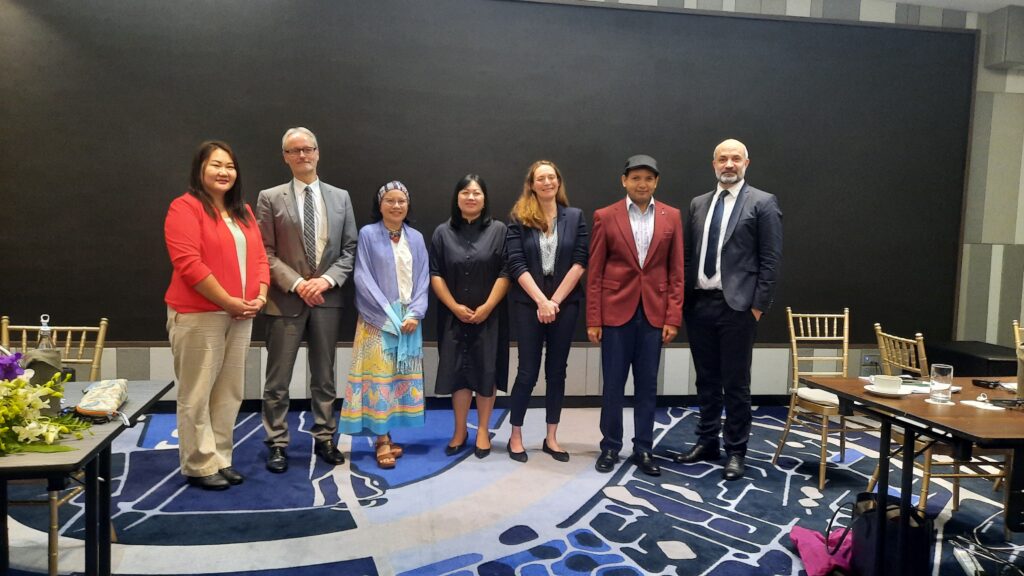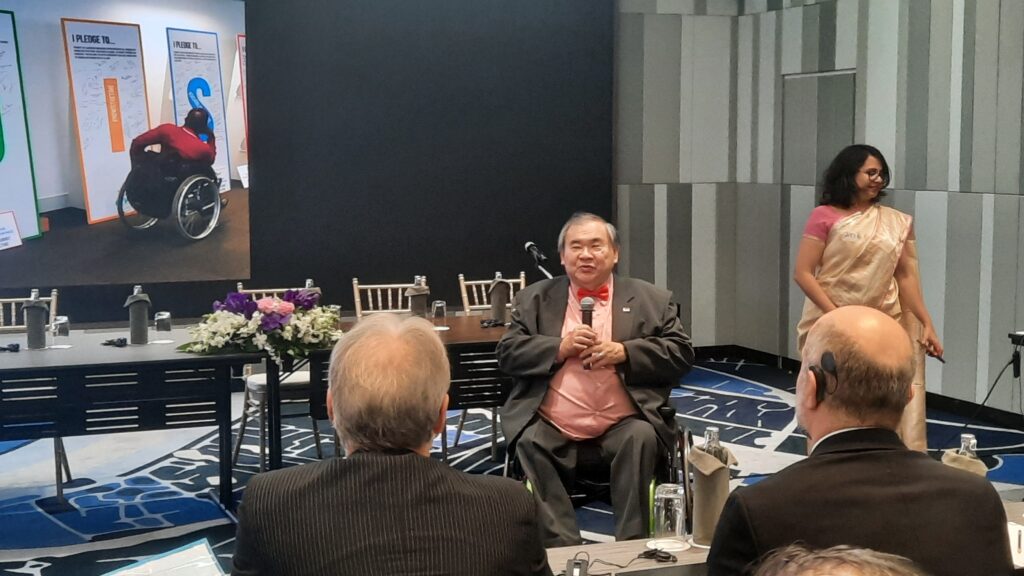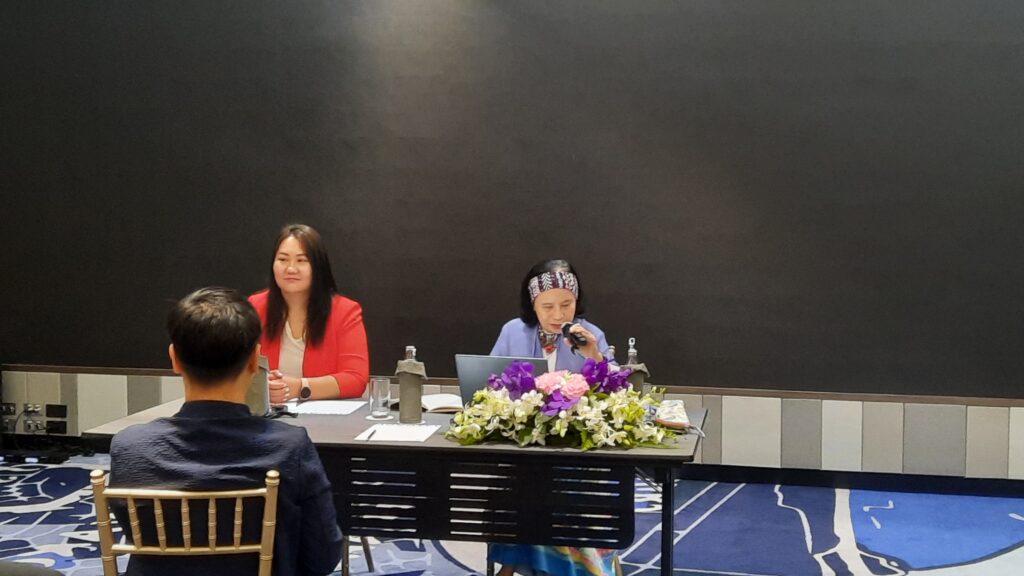
The ASEAN Disability Forum is honoured to participate in the Global Disability Summit on 2-3 April 2025 in Berlin, Germany, together with other 4500 participants from over 100 countries. Global Disability Summit is a unique global mechanism that improves the lives of persons with disabilities, especially from the global South. It was hosted together by the International Disability Alliance (IDA), the Government of Germany, and the Government of Jordan. The Summits seek to bridge the gap between two often-disconnected areas: disability inclusion and development cooperation.

On 2 April 2025, Mr. Lim Puay Tiak, the ADF Chairperson from Singapore attended the Pre-Opening Session of the Summit to present the outcome document of the first Asian Regional Disability Summit that was held in Bangkok from 14-15 February 2025. Some takeaway issues that were pointed out such as disability-inclusive development and international cooperation, gender equality including the inclusion of women and girls, poverty alleviation, inclusive employment, access to health including recovery after COVID-19, climate change and disability-inclusive disaster risk reduction, and strengthening regional platforms like Jakarta Declaration and CRPD implementation in Asia.
The pre-opening session was also opened by Ms Nadia Hadad from the European Disability Forum, Mr Juan Angel de Gouveia from the Latin American Network of Organizations of Persons with Disabilities and their Families, Ms Fatma Wangare from the Kenya Association of the Intellectually Handicapped, Mr Moaffak Alkhfaji from the Arab Organization for Persons with Disabilities, and Ms Luisa Manuofetoa of the Social Protection and Disability Division at the Ministry of Internal Affairs, Ministry of Internal Affairs, Tonga.

On the same day, Ms. Maulani Rotinsulu, the ADF Secretary General participated as one of the speakers speaking on the side event “Realizing Commitments to Disability Inclusive Humanitarian Action – the Role of Financing” organized by the Disability Reference Group (DRG). The objective of this discussion is to ensure inclusive financing or budgeting of humanitarian actions that are inclusive and reach effectively to persons with disabilities. The session was moderated by Alradi Abdalla, an Advisor of Inclusive Humanitarian Action and Disaster Risk Reduction from IDA.
Ms. Maulani A. Rotinsulu discussed important challenges that OPDs face in getting humanitarian financing. She emphasized the significance of boosting direct and flexible funding for OPDs by streamlining processes, establishing flexible qualifying requirements, and providing capacity-building assistance. She emphasized the importance of making disability inclusion a key component of humanitarian finance, ensuring that resources are specifically directed toward people with disabilities. Finally, she urged increased openness and accountability in tracking how humanitarian money is allocated and utilized to ensure meaningful participation of persons with disabilities.
Also joining the panel discussion on Financing Inclusive Humanitarian Action, Excellency Pasi Hellman Under-Secretary of State, Ministry of Foreign Affairs, Finland, Mr Juan Angel de Gouveia, the President of Latin American Network of Organizations of Persons with Disabilities and their Families, Ms. Deike Potzel, Head of Humanitarian Assistance, Crisis Prevention, Stabilization and Peace Building, German Federal Foreign Office, and Ms. Robyne Leven, the Assistant Director, DFAT’s Gender Equality, Disability and Social Inclusion Strategy Performance and Effectiveness Section.
